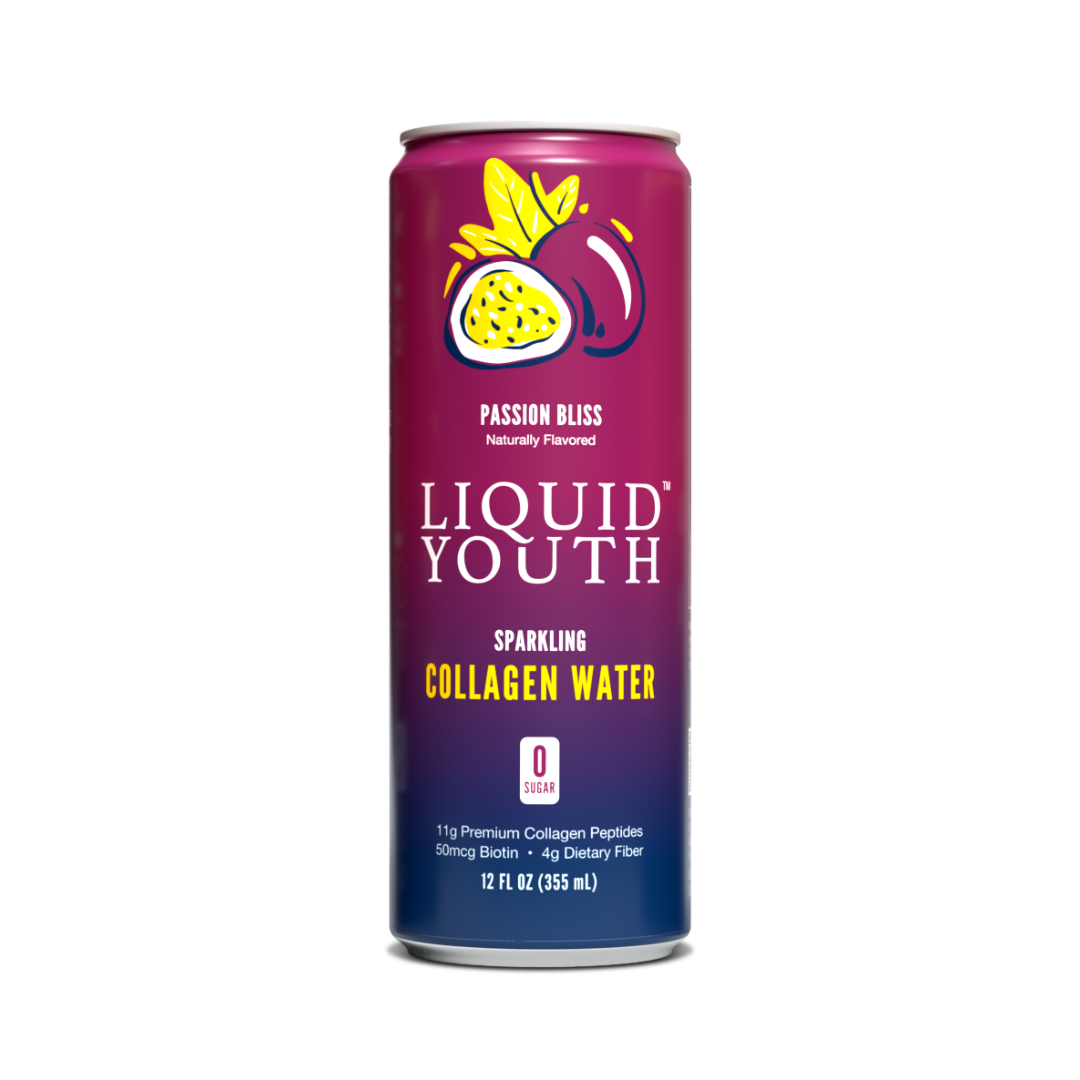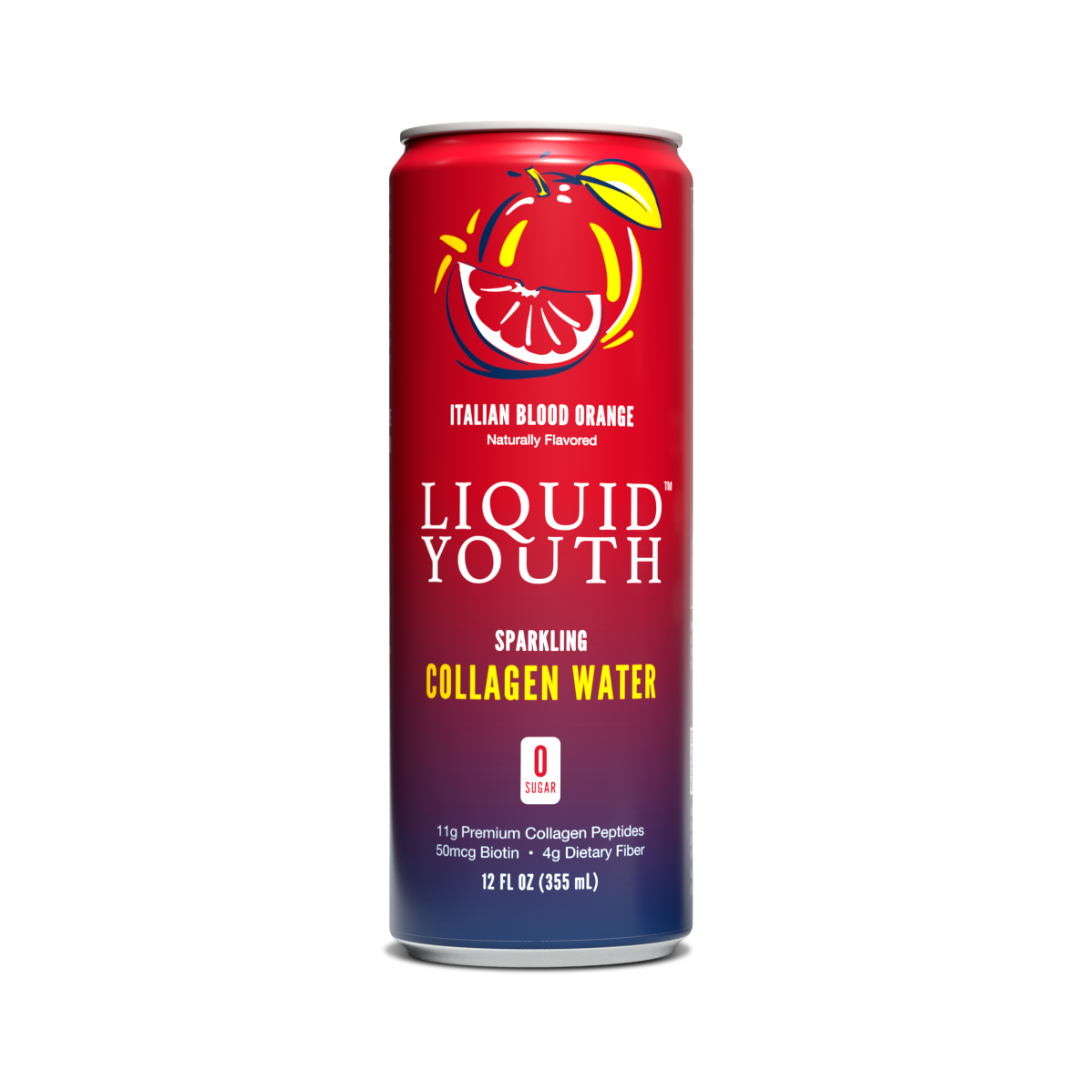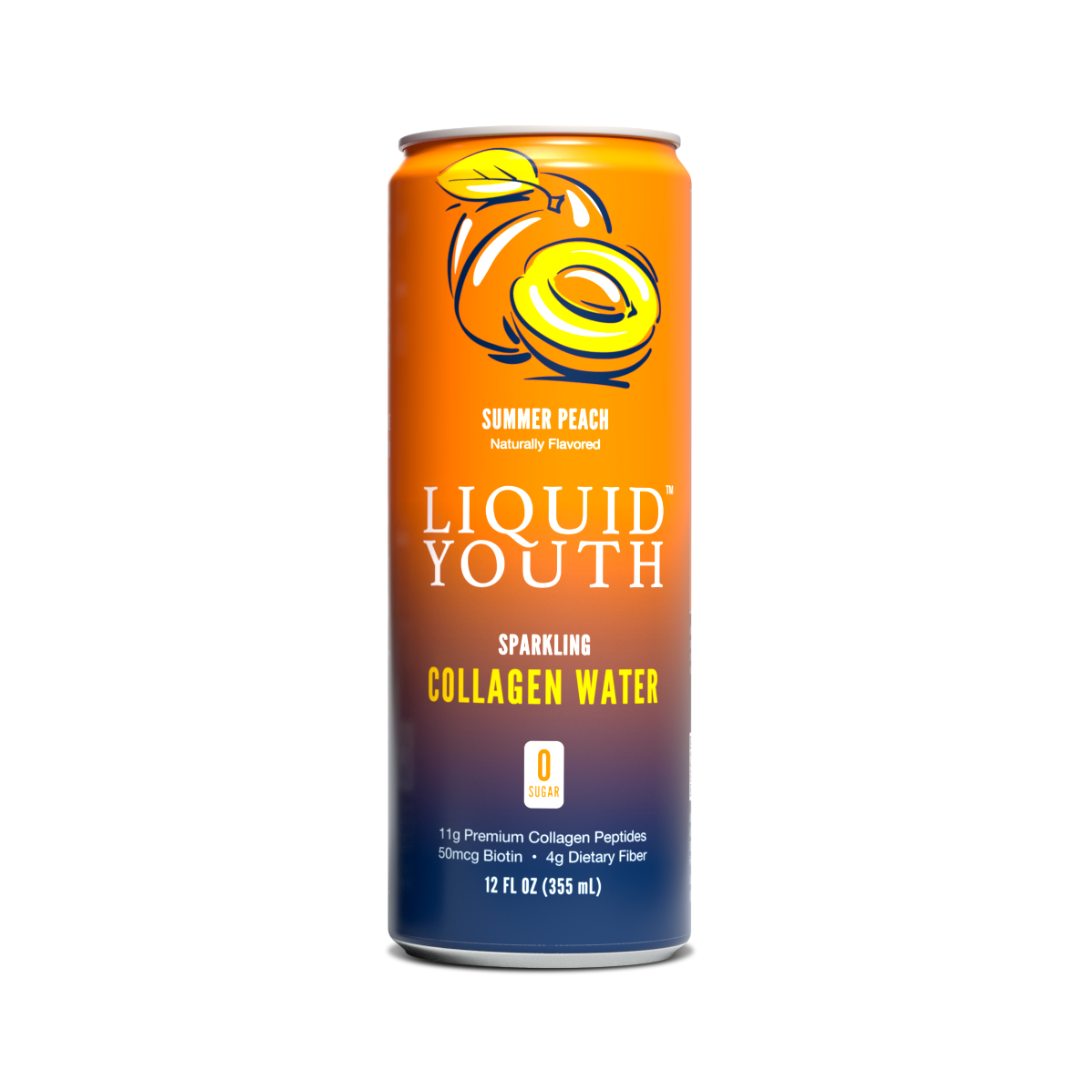Key Takeaways: When to Start Taking Collagen
-
Moving your body regularly boosts circulation and delivers oxygen and nutrients to skin cells.
-
When to start taking collagen? Ideally, in your mid-20s to early 30s, since collagen production begins to decline around age 25.
-
Starting early may help support skin elasticity, hydration, and joint comfort before visible signs of aging appear.
-
Collagen peptide supplementation can support beauty and wellness from the inside out, especially when incorporated into a consistent routine.
Let’s Be Honest—Aging Sneaks Up Fast
If you’re in your 20s or early 30s, you might think collagen is something your future self will worry about. But here’s the kicker: your body's natural collagen production starts to slow around 25.1 That means by the time you see fine lines, your body’s collagen factory has already started to taper off.
At the same time, a sedentary lifestyle can reduce blood flow and slow the delivery of nutrients to the skin. Regular movement—whether it’s brisk walking, yoga, or strength training—helps counter this by boosting circulation and energizing your complexion.
Most women wait until their 40s to start taking collagen supplements, hoping to reverse the signs of aging. But by then, it's more about maintenance than transformation. If you're asking yourself when to start taking collagen, the answer may be: start earlier and pair it with an active lifestyle for stronger results.
What Exactly Is Collagen, and When to Start Taking Collagen Seriously?
Collagen is like the scaffolding in your skin’s high-rise. It keeps things firm, lifted, and bouncy. It’s the most abundant protein in your body and plays a key role in skin elasticity, joint cushioning, strong nails, and gut health. 2
Without enough of it, skin starts sagging, joints feel creakier, and that radiant glow becomes harder to maintain. Physical activity complements this by improving blood flow and reducing inflammation, which may help your body use collagen more effectively.
Think Prevention, Not Panic
Think of collagen peptides like SPF. You don’t wait for a sunburn to wear sunscreen. You apply it before the damage.
The same logic applies to collagen. Starting early—in your mid-20s to 30s—may help preserve your skin’s bounce and support your body’s natural processes while they’re still humming along. And when you combine collagen with movement, you’re doubling down: exercise stimulates circulation and nutrient delivery, while collagen gives your skin the raw materials to rebuild and stay strong.
A study showed that women aged 35-55 who took collagen peptides daily for 8 weeks saw improved skin elasticity.2 It has been shown that exercise promotes collagen synthesis in dermal fibroblasts (These cells produce collagen, which gives skin its firmness and structure) and elastin (which lets skin stretch and bounce back), thereby potentially improving skin elasticity and appearance.3 Additionally, regular physical activity can enhance blood flow, which delivers vital nutrients and oxygen to the skin while facilitating the removal of waste products. This increase in physiological activity has a direct correlation with improved skin properties, such as hydration, skin barrier function, and overall appearance.4
But Isn’t This Just About Vanity? Think Again About When to Start Taking Collagen
Many people think that collagen peptides are all about vanity. Yes, collagen may support smoother skin and a youthful glow, but it also plays a crucial role in maintaining the health of your joints, gut, nails, and even your hair. While more research is emerging, early supplementation may support overall wellness. Which again raises the question: when to start taking collagen? Sooner may be smarter.
Pairing these two habits means you’re not just aiming for surface-level radiance; you’re supporting your body’s deeper structures and long-term health.
Let’s Flip the Script: It’s Not Too Early—It’s Right on Time
There’s this myth that you need to wait until signs of aging appear to start anti-aging routines. But that’s like fixing a roof only after it starts leaking. Not the best plan.
So if you’re wondering when to start taking collagen, your 20s and 30s may be the sweet spot. You’re not overreacting—you’re investing in the future you.
Does It Actually Work? What the Science Says About When to Start Taking Collagen
Research shows collagen peptide supplementation may improve skin hydration, elasticity, and reduce joint discomfort.5,6
Another study found improvements in nail growth and reduced brittleness after consistent use. Additionally, gut health support is also an emerging benefit of collagen peptides.7
The takeaway? Knowing when to start taking collagen might help you capture more benefits long-term.
I Eat Healthy—Do I Really Need Collagen Peptides
Even with a clean diet, most people may not get enough collagen from food alone. That’s because modern diets rarely include collagen-rich parts like bones, tendons, and skin.
Collagen peptides can fill in the gaps, especially if you’re plant-forward or tend to avoid these cuts of meat.
The 20s–30s Advantage: Compound Interest for Your Body
Starting early is like opening a retirement fund for your skin and joints. Collagen peptide supplementation may compound benefits over time, especially when used consistently.
Plus, younger bodies are typically more responsive to nutritional support, which may make early collagen use more effective. And that’s why so many wellness experts are talking about when to start taking collagen.
Final Thoughts: Your Future Self Will Thank You
So, when to start taking collagen? The sooner, the better. Starting in your 20s or early 30s isn’t jumping the gun—it’s a smart strategy. Pair that with regular physical activity, and you’re creating an environment where your skin can thrive: stronger collagen support, better circulation, less stress, and deeper repair while you sleep.
Whether you're doing it for the glow, the joints, or just to feel like your best self longer, collagen peptides can support your beauty and wellness goals from the inside out.
Your Collagen Kickstart: A Delicious Way to Begin
If you’re ready to get started, a great option is a collagen water that blends wellness with convenience try Liquid Youth Collagen Water. Each serving delivers 11g of premium grass-fed bovine collagen peptides, designed to support skin, hair, nails, joints, and gut health from within. It’s enhanced with 4g of dietary fiber and 50 mcg of biotin to support your beauty benefits. It comes in three refreshing flavors—Passion Bliss, Italian Blood Orange, and Summer Peach —with zero sugar and no artificial sweeteners or preservatives. It’s collagen that’s as delicious as it is functional, making it easy to stay consistent and feel the glow from the inside out.
When to Start Taking Collagen: FAQ
Q: When should I start taking collagen?
A: Experts suggest your mid-20s, since collagen production starts to decline around age 25.
Q: Is it too early to take collagen in your 20s?
A: Not at all. Early supplementation may support skin and joint health and help preserve elasticity before signs of aging appear.
Q: How long does it take to see results?
A: Most people report noticing benefits in 4–8 weeks with consistent daily use.
Q: Can I take collagen even without signs of aging?
A: Yes! That’s actually ideal. Collagen works preventively, not just reactively.
Q: Is it safe to take collagen every day?
A: For most healthy adults, yes. Always check with a healthcare provider before adding supplements to your routine.
References
1 Zague, V. A new view concerning the effects of collagen hydrolysate intake on skin properties. Arch Dermatol Res 300, 479-483 (2008). https://doi.org/10.1007/s00403-008-0888-4
2 Proksch, E. et al. Oral supplementation of specific collagen peptides has beneficial effects on human skin physiology: a double-blind, placebo-controlled study. Skin Pharmacol Physiol 27, 47-55 (2014). https://doi.org/10.1159/000351376
3 Crane, J. D. et al. Exercise‐stimulated Interleukin‐15 Is Controlled By<scp>AMPK</Scp>and Regulates Skin Metabolism and Aging. Aging Cell 14, 625-634 (2015). https://doi.org/10.1111/acel.12341
4 Kastella, F. et al. Potential Mechanisms of Exercise in Maintaining Skin Homeostasis Disrupted by Protein Deficiency (Review). World Academy of Sciences Journal 6 (2024). https://doi.org/10.3892/wasj.2024.235
5 Clark, K. L. et al. 24-Week study on the use of collagen hydrolysate as a dietary supplement in athletes with activity-related joint pain. Curr Med Res Opin 24, 1485-1496 (2008). https://doi.org/10.1185/030079908x291967
6 Proksch, E. et al. Oral intake of specific bioactive collagen peptides reduces skin wrinkles and increases dermal matrix synthesis. Skin Pharmacol Physiol 27, 113-119 (2014). https://doi.org/10.1159/000355523
7 Abrahams, M., O'Grady, R. & Prawitt, J. Effect of a Daily Collagen Peptide Supplement on Digestive Symptoms in Healthy Women: 2-Phase Mixed Methods Study. JMIR Formative Research 6 (2022).





















